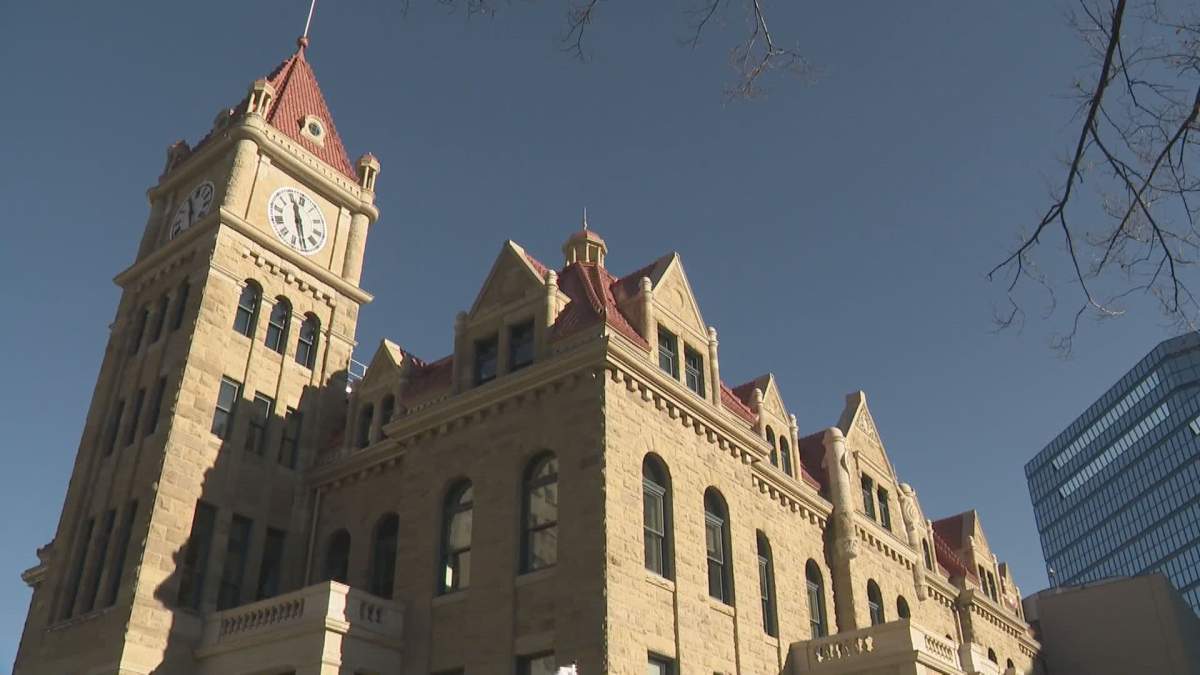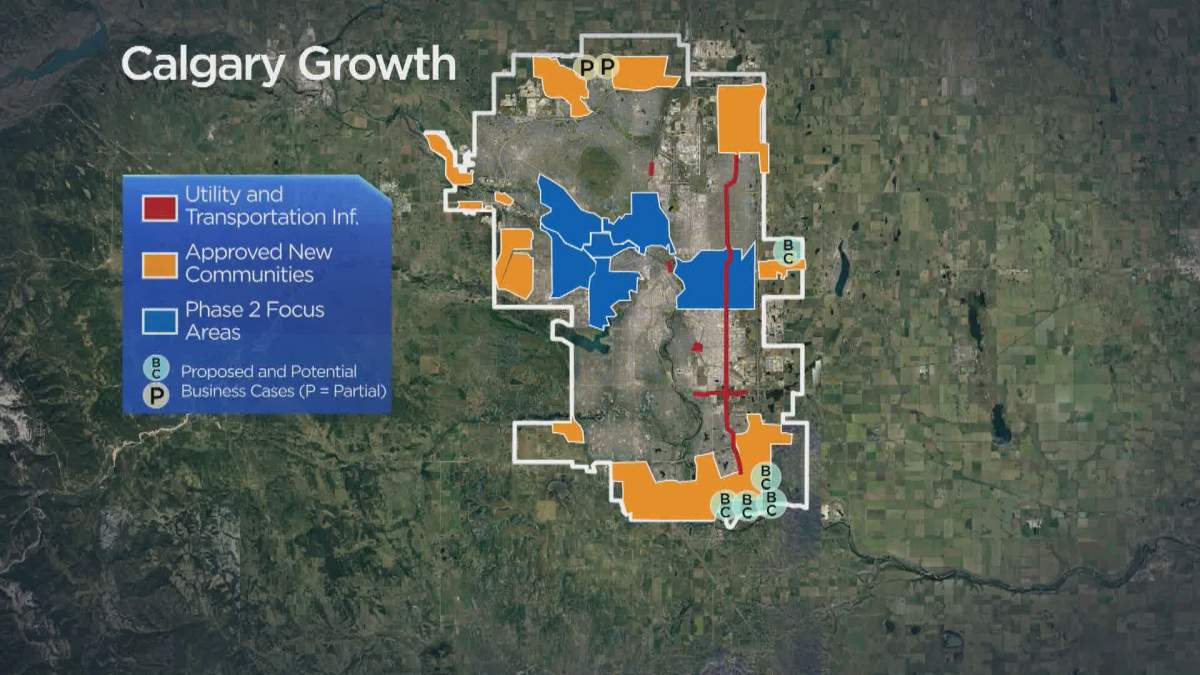Following more than 20 hours of discussion spread out over two days, a city committee recommends city council move up approval of five proposed communities on Calgary’s outer edge.

Late Thursday, the city’s infrastructure and planning committee narrowly voted 6-5 on an amended recommendation that council move up approval of the five proposed communities to September from the budget deliberations in November. Those five were recommended in a city plan to help meet the demand of Calgary’s forecasted population growth of 88,000 people by 2026.
An additional three communities were also included in the initial plan, but administration said they want to get an analysis done to see if risks around “servicing, operating cost efficiency and absorption” can be mitigated. That report is due back in September, instead of at November’s budget talks.
The original recommendation from city administration was to hold approvals on the five proposed communities until November, when city councillors will build the next four-year budget.
“From a governance perspective, it’s really important that we make big decisions all together, at the right time, having duly considered everything,” Ward 9 Coun. and committee chair Gian-Carlo Carra told reporters.
The change came from Ward 12 Coun. Evan Spencer, following an attempt from Ward 1 Coun. Sonya Sharp to move up approval of all eight proposed new communities to September.

Get daily National news
Sharp told committee members that waiting until November would be creating “another unnecessary barrier in front of businesses starting their work.”
Meantime, Ward 8 Coun. Courtney Walcott said it was “bad governance” to change the process by moving up the approval for all eight proposed communities, and added he wanted to see the process play out through the budget process.

“We don’t know what our budget is yet, it’s not done … getting this process started, it removes two months for our industry partners,” Walcott told the committee. “This is now a conversation about circumventing this to benefit industry over governance.”
The cost for the proposed communities would be included with funding for 39 previously-approved new communities pegged at $532 million over the next four years. The money would cover transit, roads, utilities, and emergency services.
According to city administration, while the five proposed communities don’t require more capital funding, they would require five million dollars in annual operational funding in the 2023-2026 budget. ‘
“I’m supportive of these five business cases moving forward. I’ve had conversations with many of you that believe all of these will go through at budget,” Spencer told the committee. “These business cases will have minimal impact to the 2023-2026 budget due to previous investment.”
Councillors Andre Chabot, Jennifer Wyness, Dan McLean and Sharp also brought forward several amendments that asked administration for further work on another five proposed new neighbourhoods to clear up concerns ahead of future consideration.
A different amendment recommended city admin to consult with the development industry about the current process of getting new communities approved and built after the committee heard concerns about the process from developers on Monday.
“The difficult part about this process is it feels like we’re picking winners and losers,” Sharp said.
The committee also voted in favour of including an investigation into net-zero emissions targets and climate initiatives into the development of these new communities.
City administration raised concerns of their own about the capacity to get the work done ahead of the budget.

Carra told the committee that he felt the move from the committee dismantled the city’s processes for the benefit of the development industry.
“The signal it sends is that regardless of what we say we’re going to do, they can lobby us and politic us into doing whatever they want,” Carra said. “That is a bad, bad place to be.”
The report also recommends an additional $232 million over four years for transit, roads, and utilities in 250 hectares of industrial areas in the city.
Another $83 million over four years is recommended for established areas in the city that are expected to cover capacity building projects and “improve the attractiveness of established areas.”
The spending decisions with both capital and operational funds will be considered at the budget. Still, the full slate of committee’s recommendations will need a final say from city council as a whole at a meeting scheduled for late July.
- Alberta Premier Danielle Smith to address immigration during province-wide address
- Rockslide closes Highway 93 between B.C. and Alberta until at least noon on Thursday
- No charges for Calgary police in shooting death of man who strapped grenade to chest
- Provinces are bracing for record deficits. What’s causing budgets to see red?









Comments
Want to discuss? Please read our Commenting Policy first.